How Cancer Care is Improving in Mississauga
Published April 20, 2018 at 11:45 am
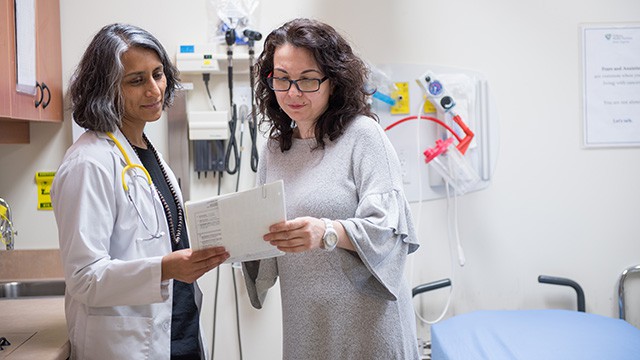
Cancer is expected to impact one in two Ontario residents, and care in Mississauga, Brampton, Oakville, Milton, and surrounding areas is becoming more streamlined thanks to the Mississauga Halton Central West Regional Cancer Program (MHCW RCP).
“It’s a complicated system to navigate,” said Leslie Starr-Hemburrow, Regional Vice-President at the MHCW RCP and Vice-President of Patient Care Services at Trillium Health Partners.
The MHCW RCP is working hard to simplify the process.
It’s the largest Regional Cancer Program in the province, with 15.6 per cent of Ontario’s population living in the areas it serves — that’s bigger than all of Manitoba and Saskatchewan combined.
“We also have the highest volume of new incident cancer cases in Ontario,” said Starr-Hemburrow.
That’s partially due to size.
The Regional Cancer Program serves 2.2 million people, spanning across two Local Health Integration Networks (LHINs) – Mississauga Halton and Central West – covering the sub-regions of Halton Hills, Milton, Oakville, North West Mississauga, South West Mississauga, East Mississauga, South Etobicoke, Bolton Caledon, Bramalea and Area, Brampton and Area, Dufferin and Area, North Etobicoke, Malton and West Woodbridge.
If you live in Mississauga, you would be able to receive all of your cancer care at Credit Valley Hospital’s Carlo Fidani Regional Cancer Centre.
For those who call Oakville or Orangeville home, “what our job as a regional cancer program is, is to connect that care,” said Starr-Hemburrow, “so that you can receive as much of that care possible, close to home.”
The entire cancer journey – from prevention to screening to diagnostics to treatment such as radiation and chemotherapy, surgery, recovery/survivorship, and end-of-life care – is offered under the program across 10 hospital sites. Locations include Credit Valley Hospital/Carlo Fidani Regional Cancer Centre, Mississauga Hospital, Queensway Health Centre, Brampton Civic Hospital, Etobicoke General Hospital, Peel Memorial Centre for Integrated Health and Wellness, Oakville Trafalgar Memorial Hospital, Georgetown Hospital, Milton District Hospital, and Headwaters Health Care Centre.
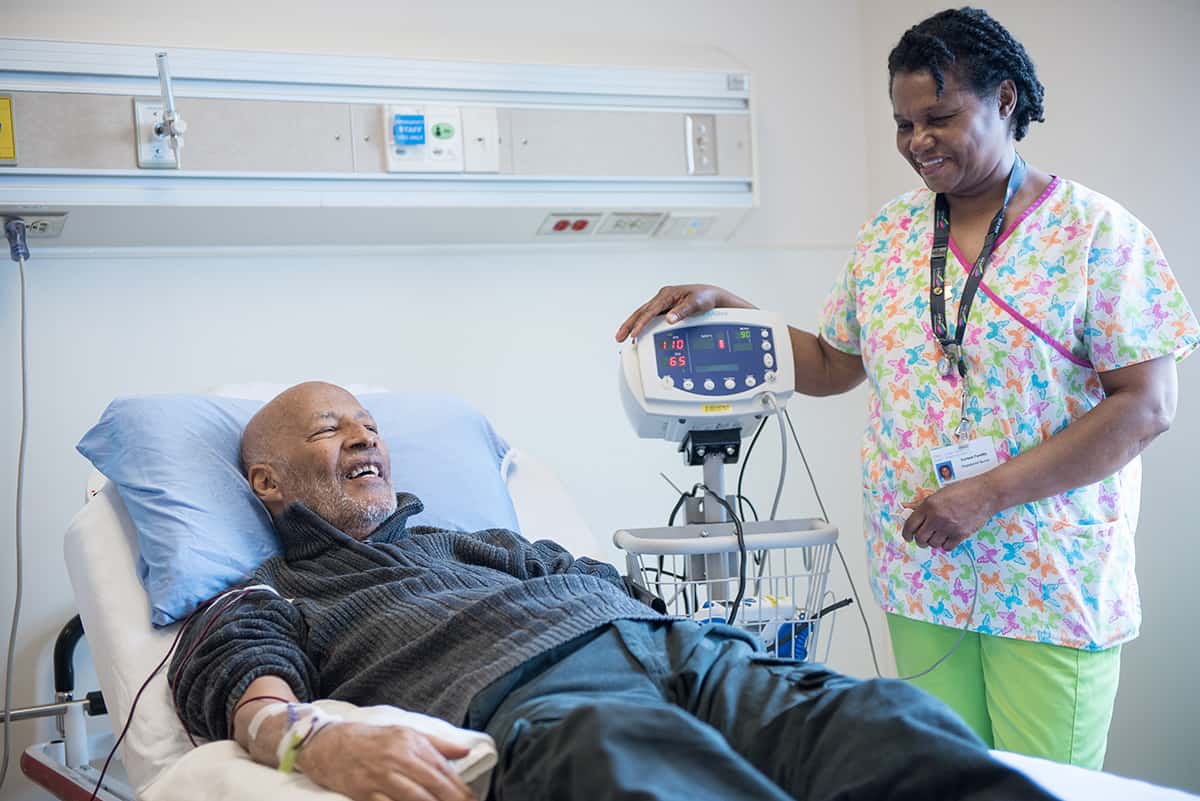
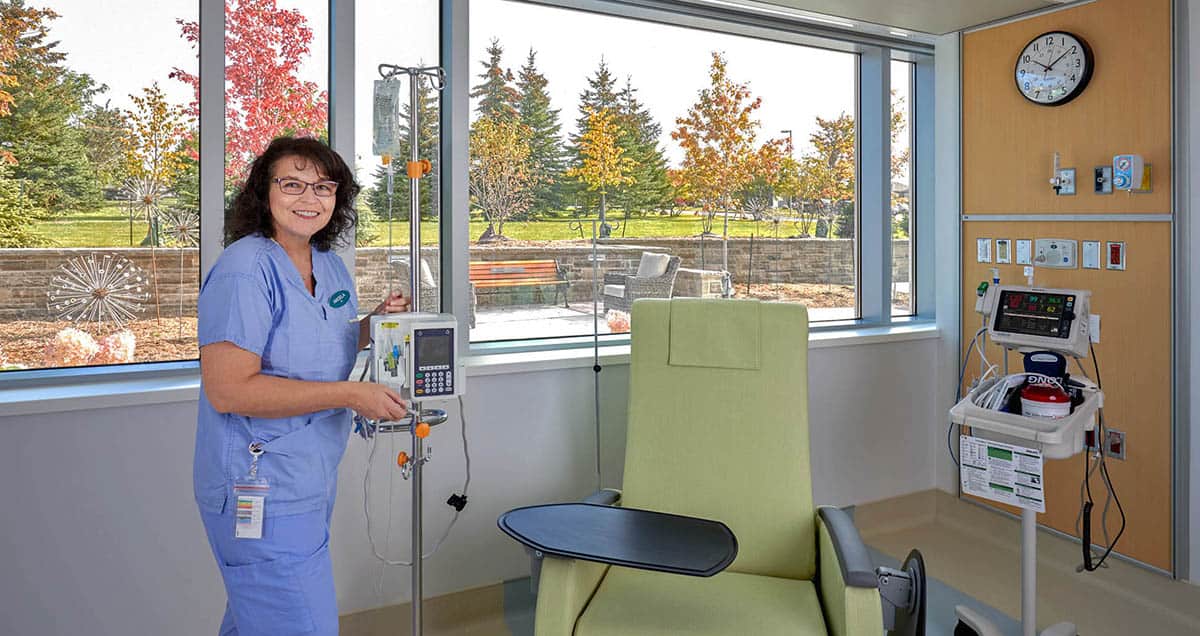
Radiation treatment, for instance, isn’t currently provided in Oakville so “we’ve established a radiation satellite clinic at Halton Healthcare’s Oakville Trafalgar Memorial Hospital” where you can receive your consults, said Starr-Hemburrow.
Making the process seamless is one of four priorities listed in their Strategic Plan for 2018-2020.
At the top of the list: ‘Support the whole person’ by providing exceptional compassionate care.
The remaining priorities encompass connecting and coordinating care, optimizing quality of care and experience, and excelling in performance and sustainability.
Dedicated healthcare professionals include family physicians, oncologists, nurses, pharmacists, dieticians, social workers, radiation therapists, spiritual care providers and community partners who help shape a patient’s treatment plan and cancer journey.
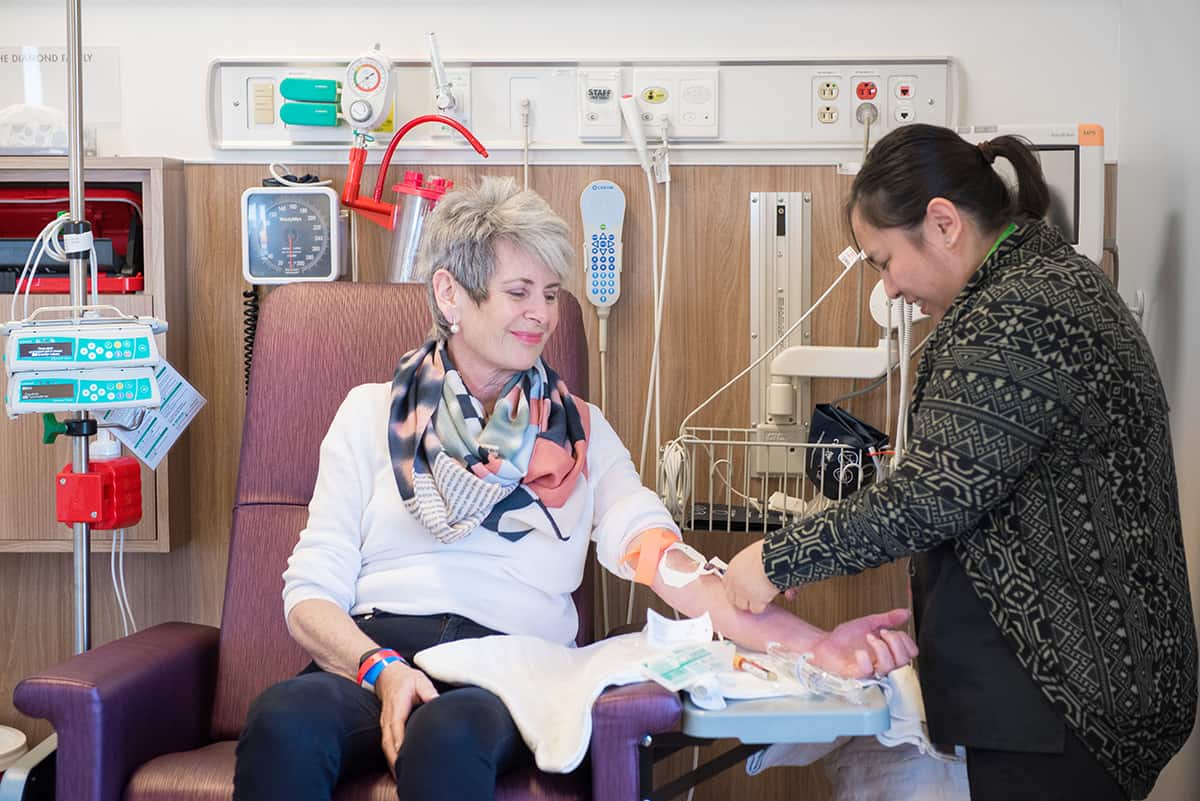
Cancer affects many age groups, but is predominantly seen in an aging population, said Starr-Hemburrow, adding “it’s one of a growing population and we’ve got both in our region.”
The majority of cancer patients, across the board and the province, are 60 and older.
“We’re not just delivering excellent chemotherapy, surgery and radiation treatment,” said Starr-Hemburrow, noting they’re “ensuring cancer care is designed to support a very diverse population.”
Cue the patient demographics — 45 per cent or “nearly one out of two people in our region identifies as a visible minority,” she said. “English is not their first language.”
Here’s how it breaks down: Peel Region’s visible minority population is pegged at 57 per cent, while Halton Region is sitting at 18 per cent. Mississauga and Brampton boast a very large South Asian population: 41 per cent and 58 per cent, respectively.
“Many women are not being screened for cultural reasons,” said Starr-Hemburrow.
With a high breast cancer surgery rate, “we’re looking at different approaches,” she said, to engage the community and underscore the importance of breast cancer screening (which is available at 34 Ontario Breast Screening Program sites).
Some efforts are more on the grassroots level, said Starr-Hemburrow, such as going to local temples, mosques and other places of worship/cultural gathering centres, plus peer-to-peer approaches and interventions.
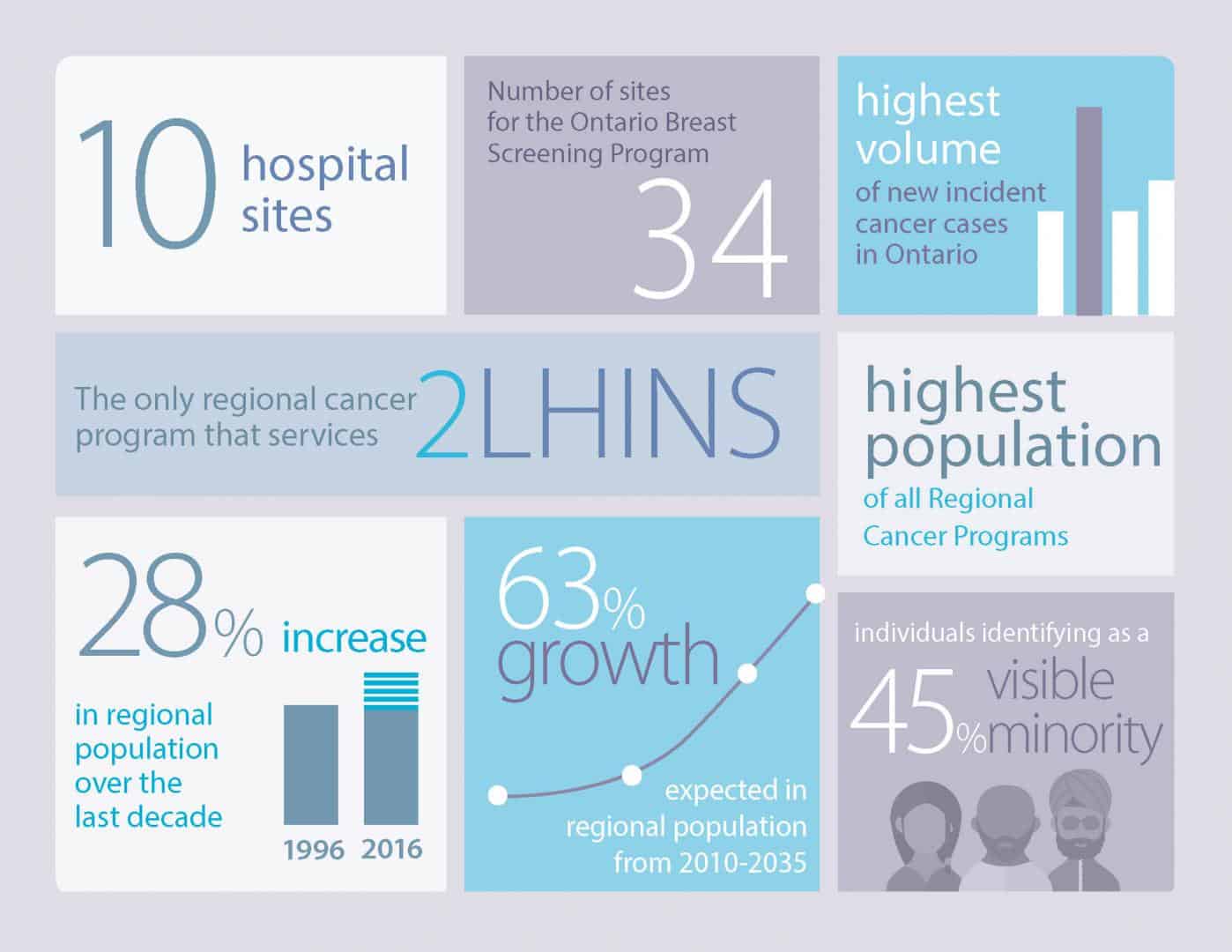
Overall, Starr-Hemburrow acknowledges the paradigm shift taking place in health care and “how important it is to treat you, the person with cancer, not just the cancer,” she said.
Hospitals were historically created for treatment and “they’re not necessarily designed to support patients with psychosocial issues, the body image issues, the impacts on finance” which come with a diagnosis.
But that’s changing with the focus on whole person care.
“Even if you are not diagnosed, someone you know, someone you love, will be,” said Starr-Hemburrow.
When it happens, “world-class cancer services are available to you and to those you care about close to home.”
To find out more about the Mississauga Halton Central West Regional Cancer Program, please visit www.mhcwcancer.ca.
INsauga's Editorial Standards and Policies